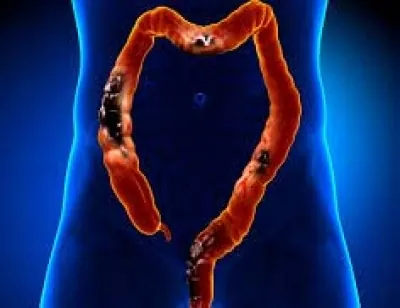
Breakthrough Trial: Can Grape Juice Compound Really Stop Bowel Cancer?
2024-11-11
Author: Arjun
Introduction
In an exciting new development, scientists in the UK are embarking on a groundbreaking trial to investigate whether resveratrol—a powerful compound commonly found in grape juice and red wine—could play a crucial role in preventing bowel cancer. This innovative study, led by the University of Leicester, aims to explore the potential of this natural substance alongside other well-known medications like aspirin and metformin.
Understanding Bowel Cancer
Bowel cancer, medically referred to as colorectal cancer, is a serious condition that begins in the large bowel, impacting both the colon and rectum. As one of the most prevalent forms of cancer, early detection and effective prevention methods are vital in reducing its incidence, particularly among high-risk populations.
The Research Team's Perspective
Professor Karen Brown, an esteemed expert in Translational Cancer Research at the University of Leicester, expressed her enthusiasm about the research. Despite the common myth that red wine can prevent cancer, she emphasized that drinking it can actually heighten cancer risk. The focus of this study is solely on purified resveratrol, which is also found in various berries and peanuts.
Trial Details and Methodology
The initiated trial, generously funded by Cancer Research UK, aims to test the efficacy of resveratrol and other medications in preventing the development of bowel polyps—precursors to cancer. With improved screening technologies making earlier cancer diagnoses more achievable, this trial not only seeks to enhance preventative strategies but also hopes to combat the rising rates of bowel cancer among aging populations.
Recruitment and Treatment Plan
Researchers plan to enroll 1,300 participants across 60 locations in England and Wales. Candidates with pre-existing polyps will undergo removal procedures followed by a treatment regimen. Participants will be divided into several groups receiving either aspirin, a combination of aspirin and metformin, or resveratrol versus a placebo. The treatment duration will vary, with the main trial administering drugs over three years and the resveratrol group covering one year.
Follow-Up and Monitoring
A pivotal aspect of this study is the follow-up procedure. After treatment, participants will undergo colonoscopies to monitor any regrowth of polyps and assess their size compared to the initial measurements.
Potential Implications
If successful, the implications of this study could be monumental. The findings could pave the way for incorporating these therapies into the NHS Bowel Screening Programme, which would help lower the risk of polyps—and consequently, bowel cancer—for those at heightened risk.
Conclusion
Stay tuned for updates on this promising research that could redefine bowel cancer prevention strategies and provide hope to millions worldwide. Could grape juice hold the key to a healthier future?




 Brasil (PT)
Brasil (PT)
 Canada (EN)
Canada (EN)
 Chile (ES)
Chile (ES)
 España (ES)
España (ES)
 France (FR)
France (FR)
 Hong Kong (EN)
Hong Kong (EN)
 Italia (IT)
Italia (IT)
 日本 (JA)
日本 (JA)
 Magyarország (HU)
Magyarország (HU)
 Norge (NO)
Norge (NO)
 Polska (PL)
Polska (PL)
 Schweiz (DE)
Schweiz (DE)
 Singapore (EN)
Singapore (EN)
 Sverige (SV)
Sverige (SV)
 Suomi (FI)
Suomi (FI)
 Türkiye (TR)
Türkiye (TR)